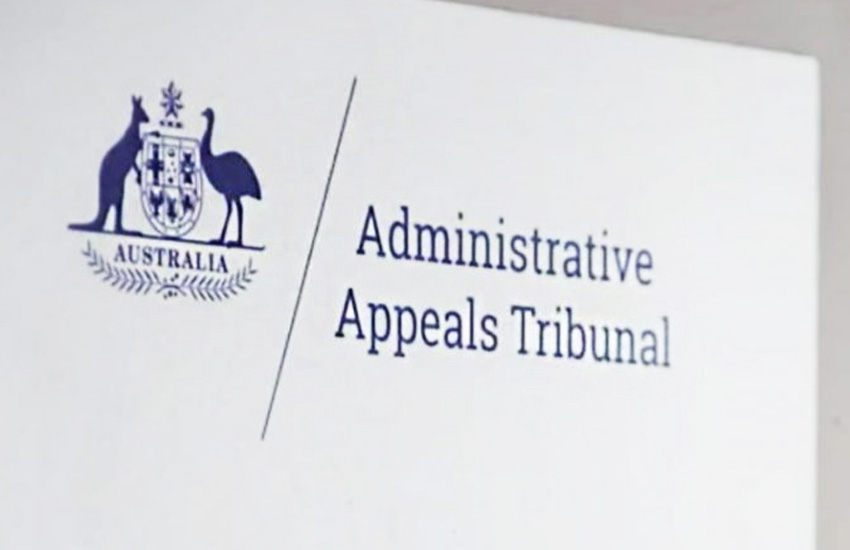Small-business gardener denied JobKeeper over taxable supply issues
TaxA small gardening business has been denied JobKeeper after having not made a taxable supply as required in the applicable period along with failing to provide any assessable income in relation to carrying on a business.

The Administrative Appeals Tribunal (AAT) has affirmed a decision of the Commissioner of Taxation that a small gardening business owner Navid Yazdani, was not entitled to JobKeeper payments under the Coronavirus Economic Response Package (CERP) Rules 2020.
The AAT found that Mr Yazdani did not have any assessable income for the 2018-19 income year in relation to him carrying on a business nor had he made a taxable supply in a tax period that applied to him that started on or after 1 July 2018 and ended before 12 March 2020.
Mr Yazdani was the owner of a newly started gardening business and obtained an ABN in respect of his gardening activities, which commenced on 5 February 2020. He previously also held an ABN in 2018 but had it cancelled after he was no longer carrying on a business.
On 20 February 2020, Mr Yazdani was registered to report GST with quarterly GST tax periods, effective from 20 February 2020. On 24 March 2020, he changed his GST registration to report annually with the ATO notifying of the change to his lodgement cycle by a letter stating the change was effective from 1 July 2019.
In September 2020, Mr Yazdani lodged his annual business activity statement (BAS) for the year ended 30 June 2020 declaring $35,483 in total sales. In Mr Yazdani’s tax return for the year ended 30 June 2020, he declared $32,438 in total business income, however, his income tax return for the year ended 30 June 2019 had shown employment income but no amount of income from carrying on a business.
Initially applying for Jobkeeper in August 2020, Mr Yazdani resubmitted a JobKeeper application form at the start of September, claiming payments under the business participation entitlement for the period 1 August 2020 to 31 August 2020 but had his application rejected by the ATO. On 16 September 2020, he then lodged an objection to the decision that he was not entitled to JobKeeper payments under the business participation entitlement.
The issue to be determined by the tribunal was whether Mr Yazdani meets the requirements in subsections 11(7) or 11(8) of the CERP Rules to be eligible for JobKeeper where he included an amount in his assessable income for the 2018-19 income year in relation to him carrying on a business; or made a taxable supply in a tax period that applied to him that started on or after 1 July 2018 and ended before 12 March 2020.
Mr Yazdani had accepted he did not satisfy the requirement in subsection 11(7) and that he was registered to report GST annually at the time that he enrolled into JobKeeper. However, Mr Yazdani submitted that he did not know when he started the business and that his circumstances would have been different if he had submitted his tax monthly instead of quarterly or annually.
Mr Yazdani argued that the decision discriminates against new businesses and his situation is one to which JobKeeper should apply and is consistent with the purpose of the CERP Act and CERP Rules.
In reaching its findings, the AAT affirmed that Mr Yazdani did not satisfy the requirement in s 11(7) of the CERP Rules as he was not carrying on a business at any time in the 2018-19 income year and did not report any business income in his income tax return for that year.
The AAT agreed with the ATO that Mr Yazdani was not entitled to JobKeeper as he had not “made a taxable supply in a tax period that applied.”
The first tax period that applied to Mr Yazdani was the financial year ended 30 June 2020, which was not a tax period that “ended before 12 March 2020” and could not be a relevant tax period for the purpose of s 11(8)(a) of the CERP Rules.
He had not made a taxable supply in either of those tax periods as this was prior to him having commenced business.
“The Applicant [Yazdani] was registered to report GST annually at the time he applied for JobKeeper in August 2020. As the Applicant commenced carrying on an enterprise in February 2020 the first tax period that applied to him is the financial year ended 30 June 2020. That is not a tax period that ended before 12 March 2020,” the AAT said.
“The last annual tax period that ended before 12 March 2020 was the financial year ending 30 June 2019. However, the Applicant did not and could not have made a taxable supply in that tax period because he was not carrying on a business at any time in that financial year.”
The AAT also found that the CERP Rules did not provide the Commissioner of Taxation or the AAT with any discretion to extend the period in which a taxable supply could be made. The discretion contained in paragraph 11(8)(b) of the CERP Rules only allows for the entity to be given more time to provide the respondent with notice that the entity made taxable supplies as required.
The discretion can’t extend the period within which such taxable supplies are required to be made and accordingly, an exercise of the discretion in paragraph 11(8)(b) of the CERP Rules cannot and would not assist the taxpayer.



